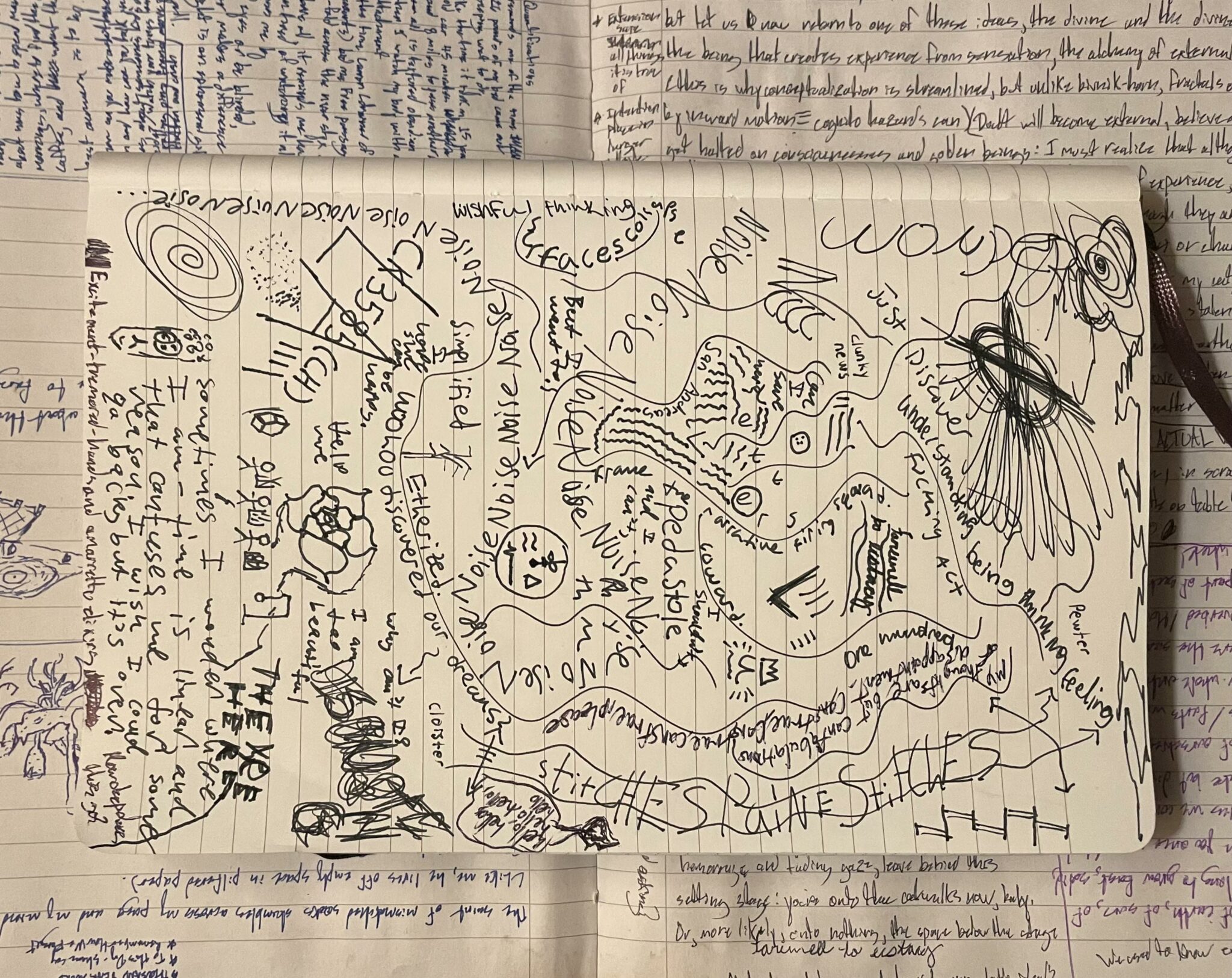four poets on their rituals for slipping into their poetic mindsets
by Quinn McClurg
Reading poetry can be fickle, elusive, and evasive. Writing poetry is much the same, as words can slip away and trail off the page before they can be understood.
Yet the gates of poetry aren’t as inaccessible, nor lofty as one would first think.
Think of poetry as a woodland animal, one that will startle at even the gentlest approach. What you need to do is to be still, be comfortable and wait. Then the muses will no longer be skittish and, instead, grow curious, approaching your patient form with a curiosity equal to yours.
It is wise to pick up your pen here and write what you can in its wild proximity.
For those who practice poetry, it can be useful to hear about the writing rituals of others. Here are some musings from poets and the environments wherein they extract their poetry
Pen Name: Pontiff. Supporter of dada and champion of post-rock.
Self-Described Writing Style: Contemplative, yet destructive; oxymoronic.
“Start writing something (anything—whether it be totally banal or the most profound thing you’ve ever thought) even if you don’t really feel like it, and keep writing past the point of hesitation. That or cuddle up with some moss and channel your environment.”
Writing advice, Pontiff.
Pen Name: Babylon. Connoisseur of nuclear Armageddon and religious imagery.
Self-Described Writing Style: Reflexivity and spontaneity, found in the space between high emotions and their comedown.
“Keep your notes app in an easy-to-reach place on your homescreen.”
writing advice, babylon.
Pen Name: Phinexso. Advocator of rot, both urban and internal.
Self-Described Writing Style: Detached, deluded, impassioned.
“Pair overstimulation with over-caffeination. Then, when your head starts to twitch and things become clear or crushing, write. Or start quiet, stay quiet, and take up no space in the poem.”
Writing advice, phinexso.
Pen Name: Fig the Boy. Enjoyer of breaking glass, then gently picking the pieces up.
Self-Described Writing Style: Fixed and curious, exploring what they are hung up on.
“[I write] when I can’t get something out of my head, or I think of a string of words I want to make into something bigger. Find the repeating phrases and look a little deeper, paint a picture around them.”
writing advice, fig the boy.
No poets were harmed in the making of this article.
